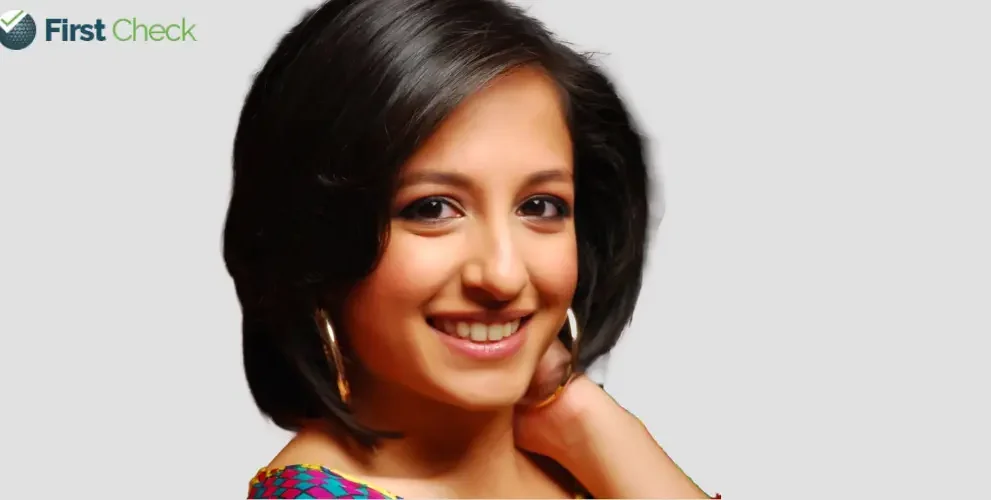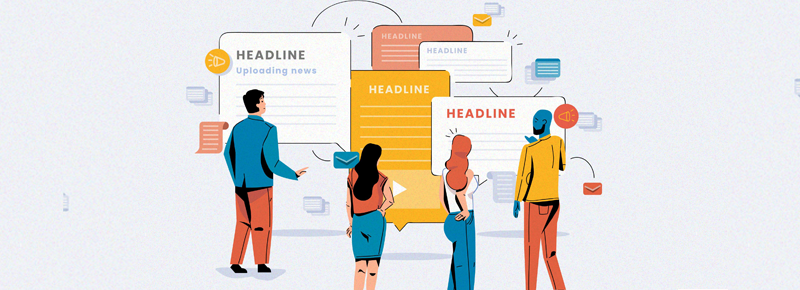Interview: ‘Misinformation can lead to misunderstandings about scientific facts’
Author
Author
- admin / 2 years

- 0
- 4 min read

Author
Dr Safieh Shah, First Check member and Canada-based senior policy scientist, talks about the power of collaboration, the prevalent challenges, and the urgency to strengthen our fight against health misinformation.
“The landscape of health misinformation is dynamic and changes over time, as does social media,” says Dr Safieh Shah, First Check member and senior policy scientist from Pakistan, now based in Canada. In an email interview, Dr Shah sheds light on the prevalence of health misinformation and why it calls for greater collaboration between professionals from the healthcare and media industries.
Edited excerpts from the interaction:
How media professionals and healthcare experts collaborate to counter health misinformation?
It’s fascinating to see how online communities are coming together, supporting each other across distances and time zones, and shaping the future. When it comes to fighting health misinformation, I’ve seen this collaboration in action with First Check: health experts provide accurate information just when it’s needed, and media professionals step in to make sure this information is easy to understand and engaging. They can amplify this information on different platforms, making sure it reaches as many people as possible.
There’s yet another way to fight health misinformation – promoting health literacy. Imagine social media campaigns by doctors, working with media specialists, to help people become better at telling accurate information from misinformation!
But let’s not forget, this work isn’t without its challenges. Public health figures could be putting their personal safety at risk. That’s why I think health experts should stick to sharing health information and avoid labelling groups of people as ‘right’ or ‘wrong’. Things can get personal and political. So, it’s important for both health experts and media professionals to tread carefully.
Do you see discernible differences in the prevalence of health misinformation in different regions?
From my experience working in different countries, I’ve noticed that misinformation is a worldwide problem. But, it’s interesting to see how the actual spread and the perceived risk of misinformation vary from place to place. Take South Asia, for example. Here, misinformation is quite widespread, but people don’t seem to be as worried about it as people in America and Canada. Even though misinformation has been a big issue in recent years, the lack of concern means we need to run more awareness campaigns.
And it’s not just about the amount of misinformation; the type of misinformation also varies. In South Asia, it’s mostly about false information spreading rapidly online. I’ve seen this happen on social media among different age groups and religious groups. The problem is, this misinformation can lead to misunderstandings about scientific facts, causing fear and panic. This was particularly harmful during the pandemic, leading to less trust in healthcare services, increased vaccine hesitancy, and the use of dangerous, unproven treatments.
In Canada, it is mostly about scams, which used to be financial but have now turned into health scams since the pandemic. This involves false prevention and treatment methods, and even fake calls telling COVID patients they don’t need to quarantine. This has eroded people’s trust in public health systems and even led to verbal abuse and threats against public health workers. Plus, there’s a high prevalence of conspiracy theories – related to vaccination for example – in almost all parts of the world.
Regular monitoring and updated research are necessary to keep abreast of the current state of health misinformation on social media. Localised studies are also needed to determine regional variations in the prevalence of health misinformation on social media.
In the context of conflict-ridden nations, how important is it to debunk health misinformation?
In nations dealing with war or conflict, fact-checking is essential. It can be the difference between life and death caused by misinformation, especially health misinformation. For instance, during conflicts, there’s often a surge in misinformation about infectious diseases. This can lead to outbreaks because people don’t have the right information.
Similarly, misinformation regarding basic sanitation and hygiene practices can lead to the spread of infectious diseases. People aren’t aware of how to protect themselves, and they don’t have the resources to do so either.
Finally, let’s not forget about misleading information about attacks on healthcare facilities and workers. This can cause even more harm because people become scared to seek medical help. This leads to a reduction in resource allocation for healthcare services as a false perception appears that there is less need.
Health misinformation is a sensitive topic that can cause confusion, sow mistrust, harm people’s health, and undermine public health efforts.
To strengthen the fight against health misinformation, become a member of First Check.









